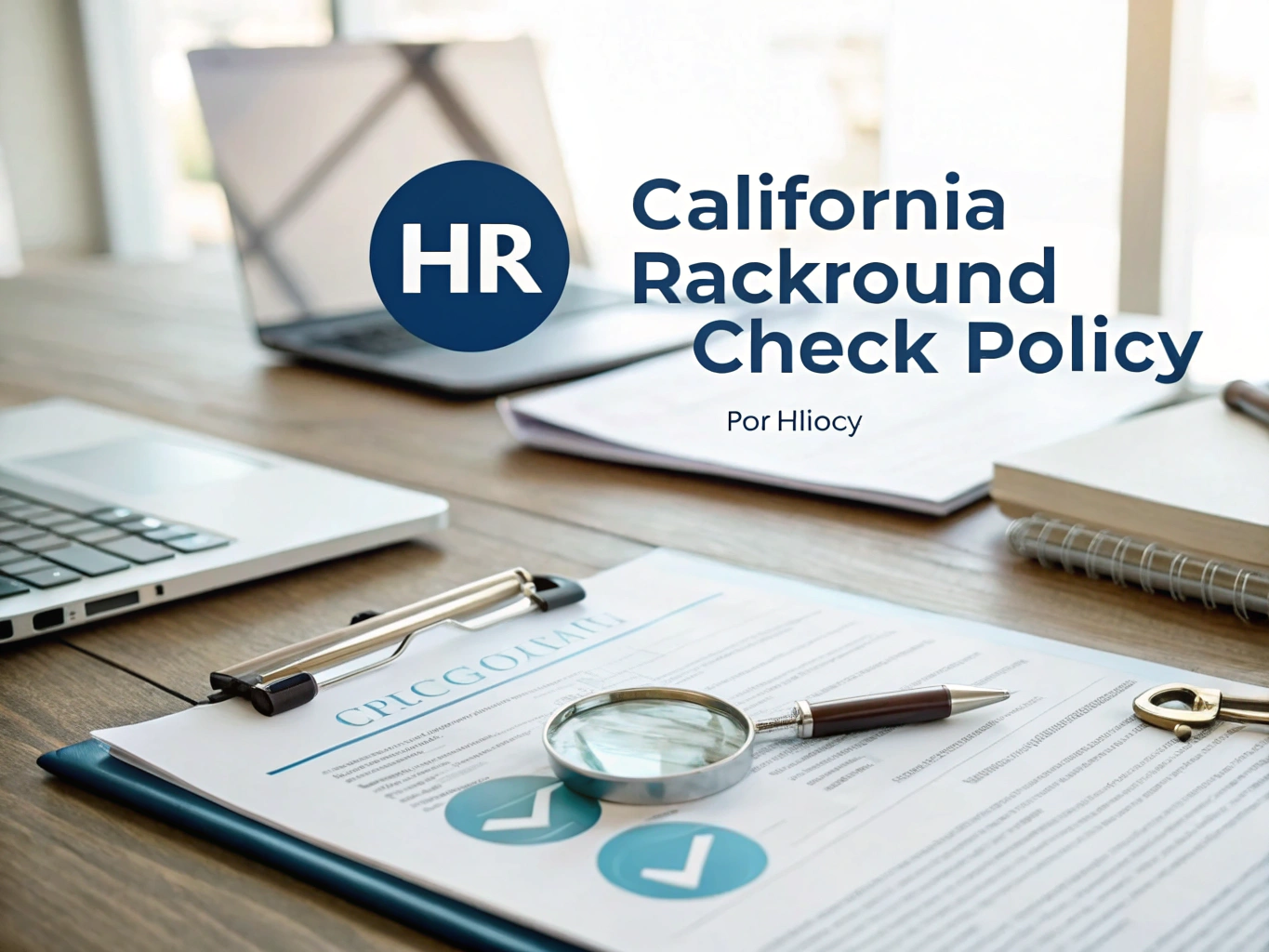Definition
A California Background Check Policy is a structured set of guidelines that outlines how your organization conducts background checks on employees, contractors, and volunteers in compliance with California laws. This policy is essential for safeguarding your workplace while ensuring you follow legal requirements, particularly those set by the California Consumer Privacy Act (CCPA) and the Fair Credit Reporting Act (FCRA).
Key Components
When it comes to crafting a California Background Check Policy, there are several key elements that you’ll want to include to ensure clarity and compliance. Let’s break them down:
- Types of Background Checks: Your policy should specify the types of checks you may conduct. This could include criminal history checks, credit reports, and employment verification. For instance, if you’re hiring for a finance role, a credit check might be necessary, while a criminal background check could be crucial for positions involving vulnerable populations.
- Consent: Before diving into a background check, you’ll need to secure written consent from the individual. This not only respects their rights but also sets the stage for transparency. The consent form should clearly outline what types of checks will be performed and how that information will be handled.
- Compliance with FCRA: Adhering to the Fair Credit Reporting Act is critical when you’re running credit checks. This includes providing pre-adverse action notices if you plan to take action based on the report and informing the individual about their rights. For example, if a credit check flags a potential issue, you must give the candidate a chance to address it before making a hiring decision.
- Confidentiality: Protecting the privacy of the individuals being screened is paramount. All results and related information should be stored securely and shared only with those who need to know. Think of it this way: just as you wouldn’t share personal health information, background check results should also remain confidential.
- Adverse Action Procedures: If a background check raises red flags, you need a clear process for how to handle the situation. This includes providing the individual with a copy of the report and information on how they can dispute inaccuracies. Imagine a situation where a candidate finds an error in their report—it’s essential that they have a way to correct it.
- Non-Discrimination: Your policy should explicitly state that background checks won’t be used in a discriminatory manner. Decisions should be based on relevant job qualifications, ensuring that all candidates are treated fairly regardless of their background.
Importance in the Workplace
Implementing a California Background Check Policy isn’t just about compliance; it’s about fostering a safe and trustworthy work environment. Consider this: if you’re hiring someone for a sensitive role, such as working with children or in healthcare, knowing their background can prevent potential risks. Moreover, a robust policy helps build trust with your employees, as they feel confident that their workplace prioritizes safety and integrity.
Best Practices
To effectively implement a California Background Check Policy, here are some best practices to keep in mind:
- Regular Training: Ensure that your HR team is well-versed in the policy and any changes in the law. Consider hosting annual training sessions to keep everyone up-to-date.
- Clear Communication: Be transparent with applicants about what the background check entails. This not only helps set expectations but also builds trust from the start.
- Stay Updated: California laws can change, so make it a habit to review and update your policy regularly. This might involve checking in with legal counsel to ensure compliance.
- Document Everything: Keep thorough records of all background checks conducted, including consent forms and any communications regarding adverse actions. This can protect your company in case of disputes.
- Use Reputable Services: If you’re outsourcing background checks, ensure that you work with credible and compliant vendors. This protects both your organization and the individuals being screened.
Legal Considerations
When implementing a California Background Check Policy, it’s crucial to be aware of the legal landscape. The California Consumer Privacy Act (CCPA) provides individuals with rights regarding their personal information, including how it’s collected and used. Additionally, the Fair Credit Reporting Act (FCRA) outlines specific guidelines for conducting credit checks. Non-compliance can lead to serious repercussions, including lawsuits or fines, so make sure you’re familiar with these laws and incorporate them into your policy.
Conclusion
Understanding and implementing a California Background Check Policy is vital for any organization operating within the state. Not only does it help safeguard your workplace, but it also fosters trust and transparency with your employees. By prioritizing safety and legal compliance, you’re not only protecting your organization but also supporting a positive work culture where everyone feels secure. So, take the time to develop a comprehensive policy—it’s a worthwhile investment in your company’s future!




